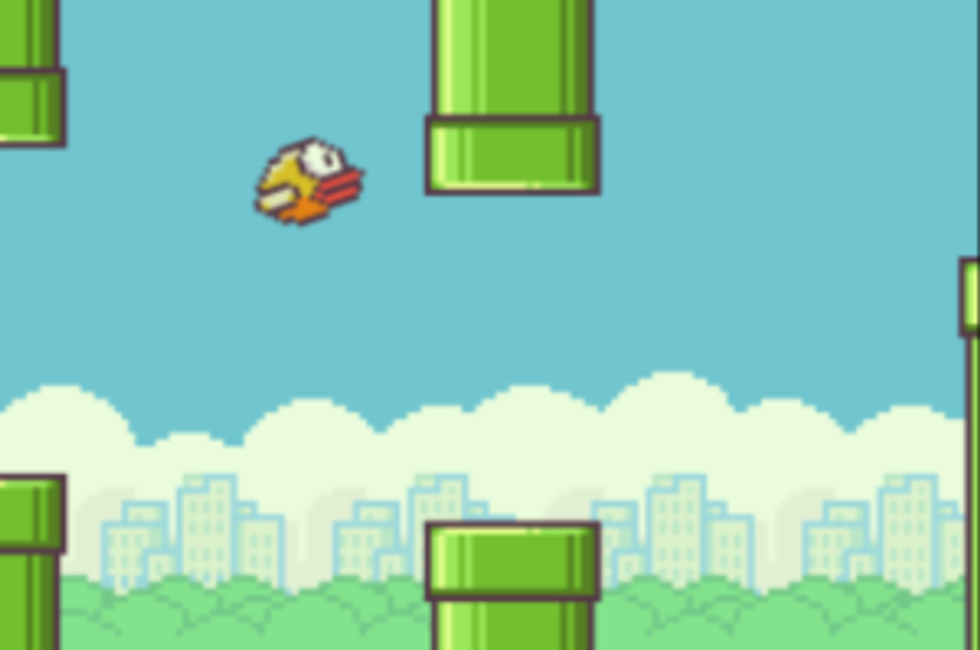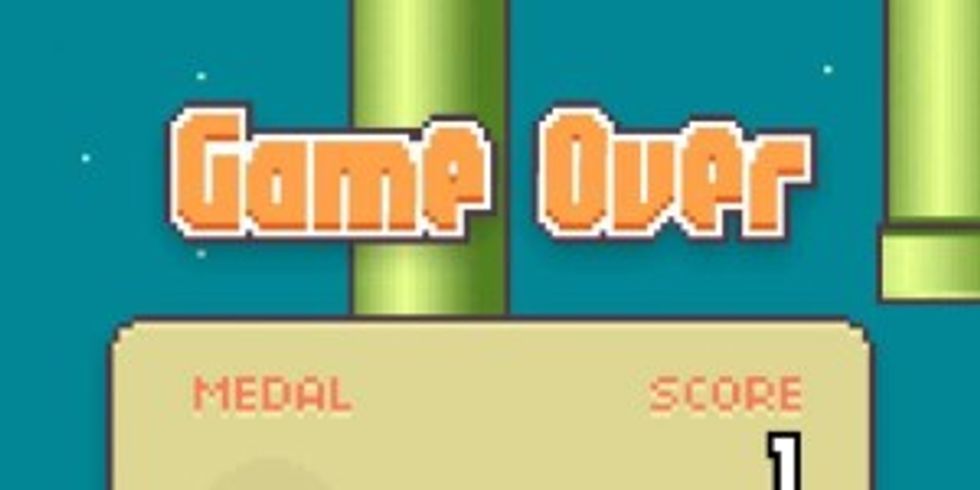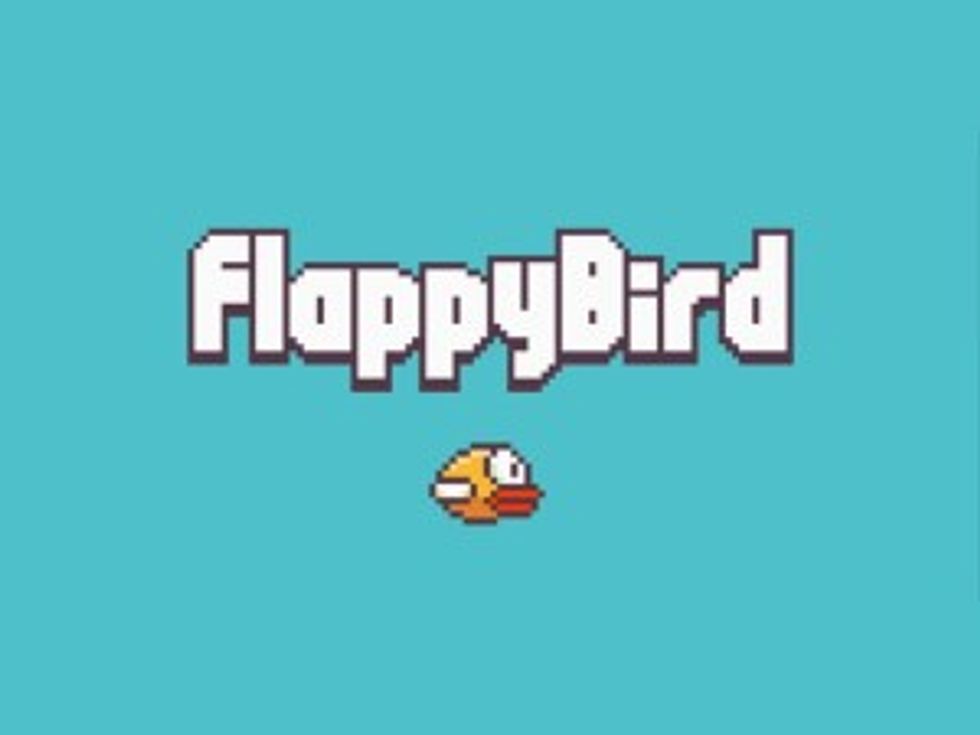
The Rise and Fall of Flappy Bird
Mobile game Flappy Bird recently caused an online sensation. Created by Dong Nguyen, published by GEARS Studios, and released in May 2013 on iOS and Android, Flappy Bird steadily gained popularity over the next six months. Without warning it began to boom in December, and in January 2014 it became an international phenomenon.
To the consternation of millions, Nguyen suddenly removed Flappy Bird from iTunes and Google Play in February 2014. This was a mystifying decision considering its exceptional popularity. However, there soon emerged a tale of an addictive little game blown out of all proportions. Here’s the story of Flappy Bird's meteoric rise and fall.
The Game
Flappy Bird is a traditional side scroller with retro 16-bit era graphics. A key feature is its use of pipes, which overtly resemble those from the Super Mario games. A player’s objective is to guide a small bird through a perpetual series of pipes by tapping at the screen – each pipe successfully traversed earns the player a point. The goal is to achieve as high a score as possible until, inevitably, a mistake is made.
The game met with a mixed critical reception, but its fiendish difficulty proved addictive. Anyone familiar with the Nintendo Entertainment System (NES) two decades ago will remember the intense difficulty of titles such as Silver Surfer, Castlevania, Ninja Gaiden, and Ghosts N Goblins. There was a reason for this: in the 1980s developers, aware of the short length of their games, ramped up difficulty levels to offer a lengthier challenge. Due to this, the NES era has become legendary for its near impossible difficulty levels.
As it states on publisher GEARS Studios’ site, “Our work is heavily influenced by retro pixelated games in its golden age. Everything is pure, extremely hard and incredibly fun to play.” They certainly achieved these goals with Flappy Bird. At its peak the game was, courtesy of effective advertising, making $50,000 a day. It all appears to make for another global success story, yet Flappy Bird has been consigned to history. Officially, it no longer exists. What exactly went wrong?
Bowing Out In Style
The frustrating nature of Flappy Bird appears to have made its success. As players vented their frustrations on social media, and talked about it with their friends, it steadily grew in popularity. Sales exploded in January 2014, and at this stage the media and public interest became overwhelming. The game looked set to dominate 2014, but on February 8th Nguyen announced via Twitter he would be taking Flappy Bird offline. Fans reacted with astonishment, but on February 10 he remained true to his word.
Several possibilities behind Flappy Bird's abrupt demise have surfaced. The use of Nintendo’s trademark Super Mario pipes suggest Nguyen may have been contacted by the Japanese gaming giant and ordered to remove Flappy Bird. This has been denied by both parties. Nintendo's spokesman, Yasuhiro Minagawa, informed the Wall Street Journal, “While we usually do not comment on the rumours and speculations, we have already denied the speculation.”
Other possibilities are based around its creator. In a rare interview with Forbes, Dong Nguyen said the game, “happened to become an addictive product. I think it has become a problem. To solve that problem, it's best to take down Flappy Bird. It's gone forever." Nguyen made it clear on his Twitter account he was frustrated with the attention his creation had thrust upon him. Plagued by media and fan attention (including death threats), the developer was understandably unprepared. He pleaded for a return to a “quiet life” and removed the game. His creation, however, will linger on for some time.
Legacy
It may no longer officially exist, but Flappy Bird continues to receive mass hype. It's everywhere: commuters can be heard excitedly discussing it, iPhones with Flappy Bird sell for vast amounts on eBay (£150,000 on the UK site), one American “rents” his version via Craigslist for $1 a minute, and thousands of Flappy Bird derivatives are being disseminated online. Such is the mania, many are willing to pay vast amounts of money to play it, despite free versions existing.
Its worldwide rise to prominence is analogous to Alexey Pajitnov’s Tetris in the early 1980s. This famous puzzle game spread slowly from Moscow, worked its way across the world, and by 1989 was a smash hit on Nintendo’s Game Boy. Flappy Bird’s rise was much faster, but the end result has something of a poignant air to it - the humble Dong Nguyen pleading to be left alone. Many have commented the title could easily have made him extremely rich, but perhaps the Flappy Bird story should remind the world not everything is about money.
As time progresses and the craze wears itself out, Flappy Bird will no doubt become a mere coda in the history of video games. Before it all fades away you can see a free, recreated version at FlapTheBird. There you can play the little game which no longer exists, yet in its brief life kicked up an international storm.






